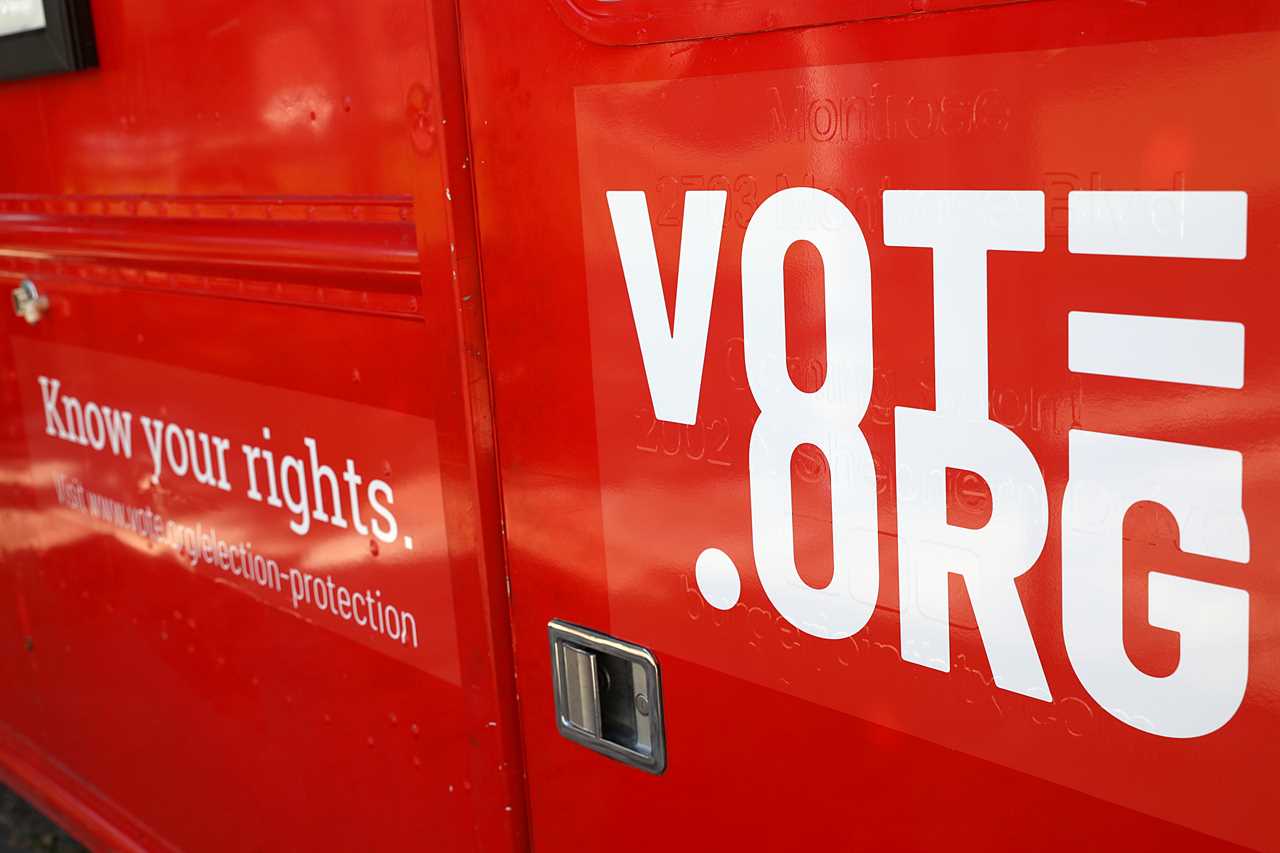
Vote.org, the nonpartisan voter registration and turnout organization, is investing at least $10 million to engage young voters ahead of the midterm election.
The group is launching its “Vote Ready” campaign to reach more than 4 million voters between the ages of 18 and 30, with a focus on young voters of color, according to plans first shared with POLITICO. It’s the largest investment the group has made for a program focused on youth registration.
The initiative hopes to meet the 1 million voter registration goal Vote.org set earlier in the year with When We All Vote, the campaign to register and organize voters founded by former first lady Michelle Obama. Vote.org has registered over 381,000 new voters since the end of the 2020 election. The group said it is confident the new campaign will bring it to 1 million voters by Nov. 8.
The group is working with partner organizations to provide voter resource tools and to share accurate information about voting through social media. Many major tech companies, like TikTok, YouTube and Twitter, have released policies ahead of the midterms reaffirming a “commitment to election integrity” and outlined plans to avoid the spread of election-related misinformation.
"One of the big things is to meet people where they already are," Vote.org CEO Andrea Hailey said. "We want to reach out through the influencers and people that they already are following to make sure they're receiving all the voting information they need."
The campaign will focus on key states that Vote.org has identified as pivotal to increasing youth turnout — Arizona, Georgia, North Carolina, Texas, Colorado, Michigan, Ohio, Wisconsin, Florida, Nevada and Pennsylvania. Hailey said these states were chosen because of their high populations of young voters and large communities of color. But many of these are battleground states, hosting a number of competitive races up and down the ballot — including ones that could determine who controls Congress. Recent data from the Tufts University Center for Information and Research on Civic Learning and Engagement found that youth of color can be decisive in key races, including in Arizona, Nevada, North Carolina and Georgia.
In 2020, youth turnout was 11 points higher than the previous presidential election, and 47 percent of Vote.org’s site engagement came from voters aged 18 to 34. Seventeen million young people have turned, or are turning, 18 between the 2020 election and the 2022 midterms, according to the group.
But it’s a midterm year, when voter turnout is historically lower than during a presidential election. And given today’s political landscape, young voters may not feel compelled to come to the polls. A New York Times/Siena College poll from July found that 48 percent of respondents between 18 and 29 said that they felt “voting did not make a difference in how their government operates.”
Hailey said the goal is to not only register new voters, but ensure that those who voted in 2020 come back because once a voter participates in two elections, voting is more likely to become a lifelong practice. "If you don't have a voting history, then people don't reach out to you and ask for your vote," she said. "Our thought is that people want to participate, they just need to be included ... and they just need access to the information."
The 2022 election cycle is also the first in which members of Gen Z can run for federal office. The most prominent success story so far is Maxwell Frost, the Democrat running who won his party's nomination last month in Florida's 10th Congressional District. The seat is heavily Democratic, setting Frost up to be the first Gen Z member of Congress barring a general election surprise.
Other Gen Z candidates haven’t seen as much luck. The roster of Gen Z candidates who ran for office and lost their primaries this cycle include Ray Reed in Missouri, Matt Foldi in Maryland, Reuven Hendler in New Jersey and Skylar Williams in Montana. The Republican primary in New Hampshire's 1st District taking place Sept. 13 features two Gen Z candidates — Karoline Leavitt, one of the frontrunners in the crowded field, and Tim Baxter.
“Seeing people who resemble you and are like you and share your ideals and values is a motivating factor,” Hailey said. “People are starting to realize that when you see leadership that reflects who you are, you realize that you also have a voice.”
----------------------------------------
By: Madison Fernandez
Title: Vote.org plans $10M-plus spend to engage young voters ahead of election
Sourced From: www.politico.com/news/2022/09/06/vote-org-young-voters-election-00054827
Published Date: Tue, 06 Sep 2022 03:30:00 EST
Did you miss our previous article...
https://consumernewsnetwork.com/politics-us/canadian-police-10-dead-15-injured-from-stabbings






